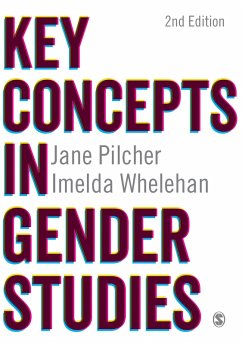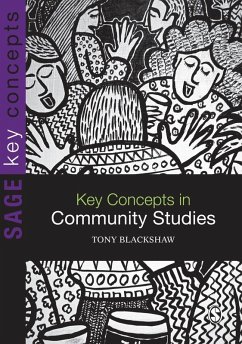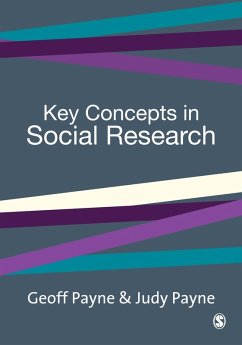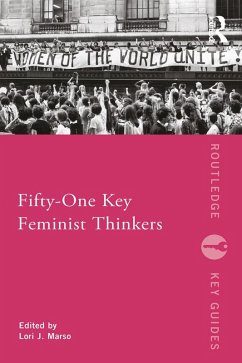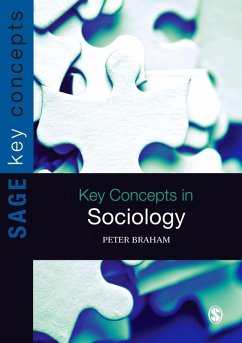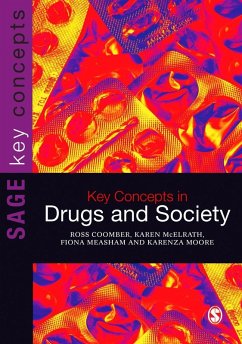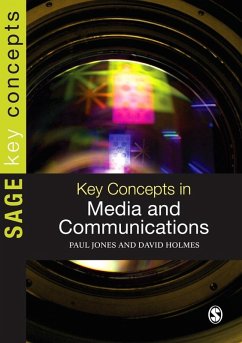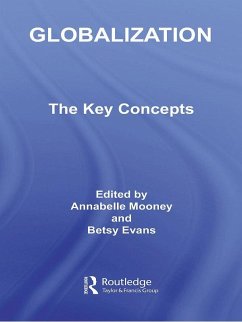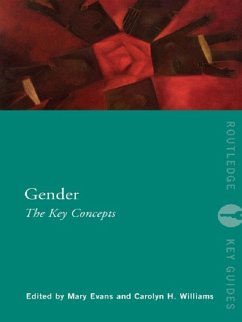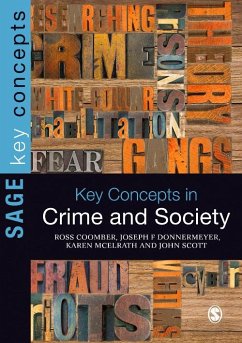
Key Concepts in Feminist Theory and Research (eBook, PDF)
Versandkostenfrei!
Sofort per Download lieferbar
48,95 €
inkl. MwSt.
Weitere Ausgaben:

PAYBACK Punkte
24 °P sammeln!
This original and engaging text explores the core concepts in feminist theory.This up-to-date text addresses the implications of postmodernism and post-structuralism for feminist theorizing. It identifies the challenges of this through the development of 'conceptual literacy'. Introducing conceptual literacy as a pedagogic task, this text facilitates students' understanding of, for example:- The range and lack of fixity of conceptualizations and meanings of key terms;- The significance of theoretical framework for conceptualization of key terms;- The changing nature of language and the reframi...
This original and engaging text explores the core concepts in feminist theory.
This up-to-date text addresses the implications of postmodernism and post-structuralism for feminist theorizing. It identifies the challenges of this through the development of 'conceptual literacy'. Introducing conceptual literacy as a pedagogic task, this text facilitates students' understanding of, for example:
- The range and lack of fixity of conceptualizations and meanings of key terms;
- The significance of theoretical framework for conceptualization of key terms;
- The changing nature of language and the reframing of key terms in research (eg the recent shift from equality to social justice);
The text explores these issues through six key concepts in feminist theorizing: equality; difference; choice; care; time; and experience. Each chapter considers the varied ways in which these terms have been conceptualised and the feminist debates about these concepts. Each chapter includes case studies to illustrate the application of these concepts in feminist empirical research, and provides a guide to further reading.
This text will be an invaluable tool for students taking courses in feminist theory and research methods, and students across the social sciences who are taking courses concerned with issues of gender.
This up-to-date text addresses the implications of postmodernism and post-structuralism for feminist theorizing. It identifies the challenges of this through the development of 'conceptual literacy'. Introducing conceptual literacy as a pedagogic task, this text facilitates students' understanding of, for example:
- The range and lack of fixity of conceptualizations and meanings of key terms;
- The significance of theoretical framework for conceptualization of key terms;
- The changing nature of language and the reframing of key terms in research (eg the recent shift from equality to social justice);
The text explores these issues through six key concepts in feminist theorizing: equality; difference; choice; care; time; and experience. Each chapter considers the varied ways in which these terms have been conceptualised and the feminist debates about these concepts. Each chapter includes case studies to illustrate the application of these concepts in feminist empirical research, and provides a guide to further reading.
This text will be an invaluable tool for students taking courses in feminist theory and research methods, and students across the social sciences who are taking courses concerned with issues of gender.
Dieser Download kann aus rechtlichen Gründen nur mit Rechnungsadresse in A, D ausgeliefert werden.




